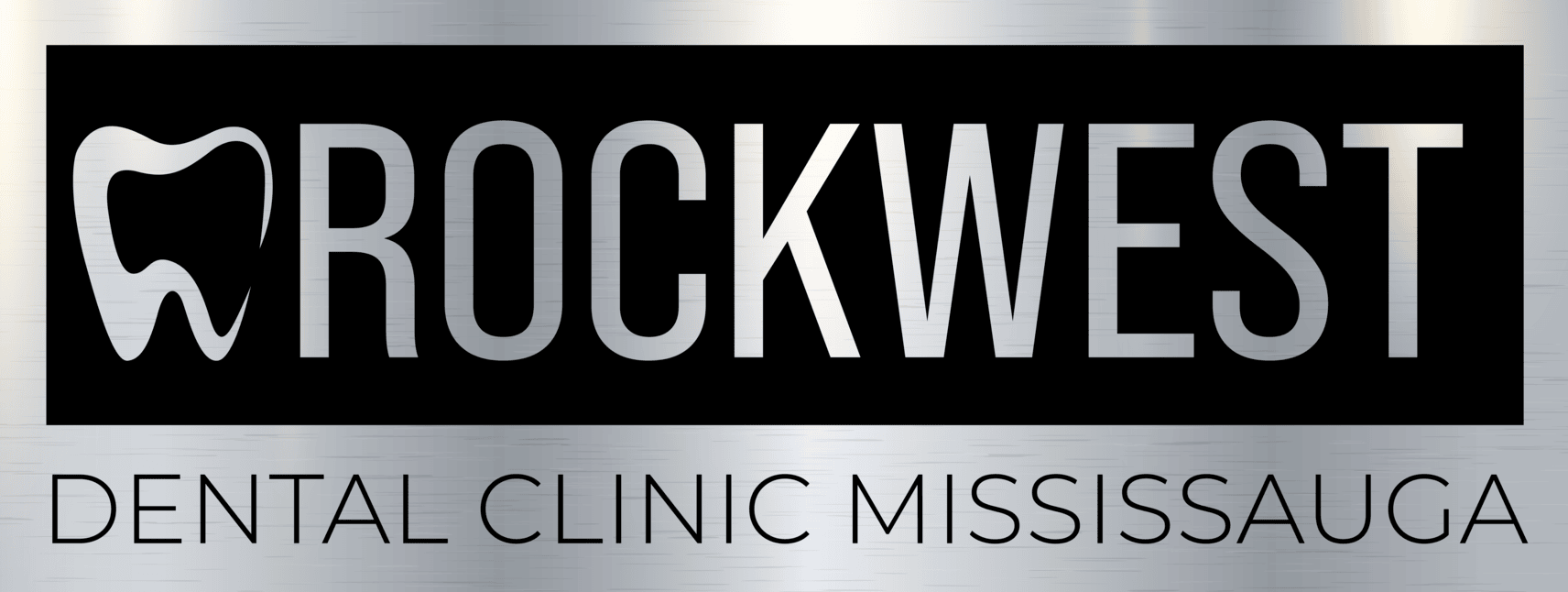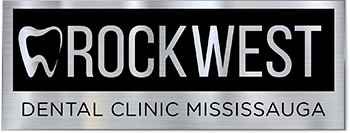

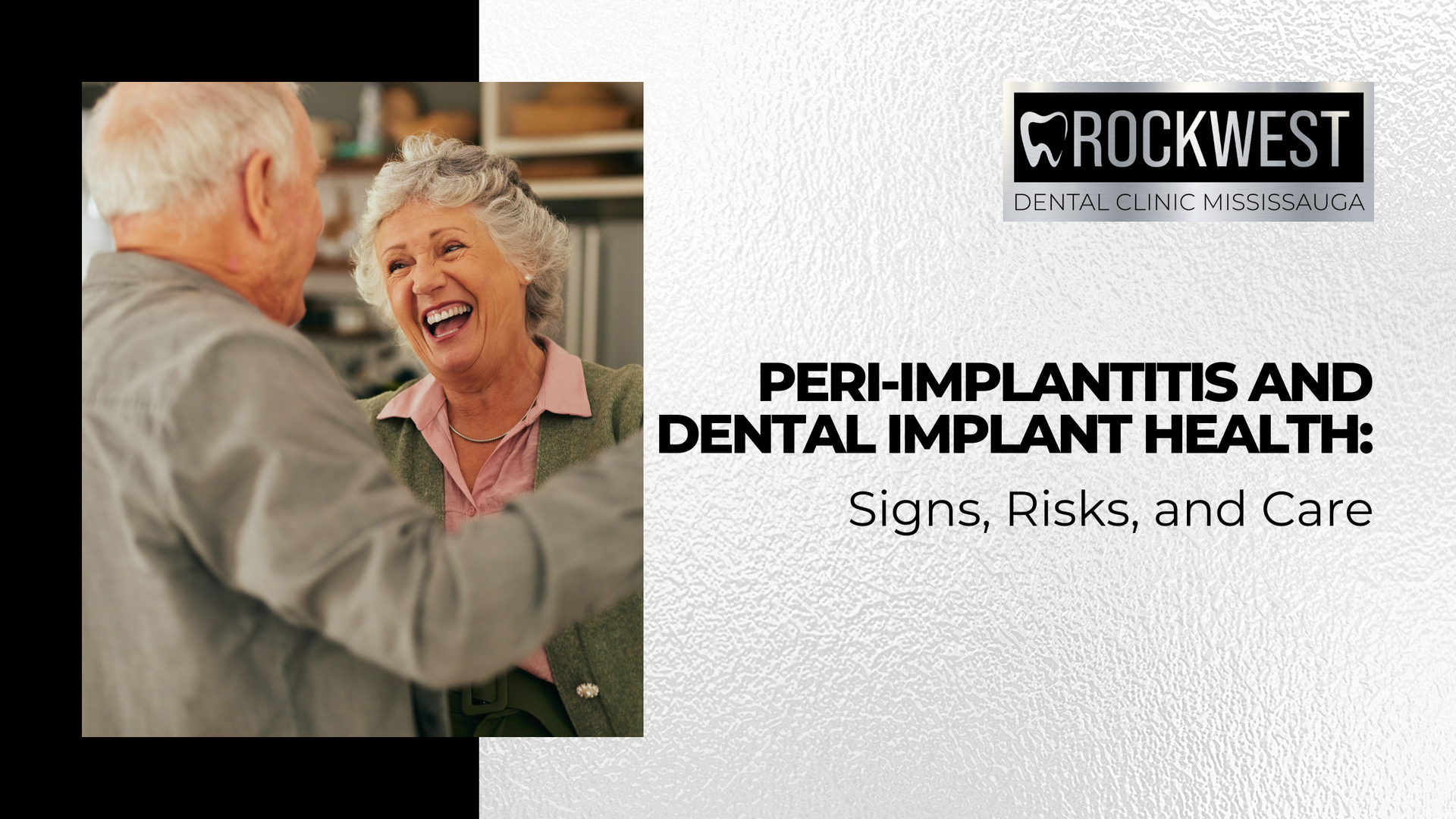
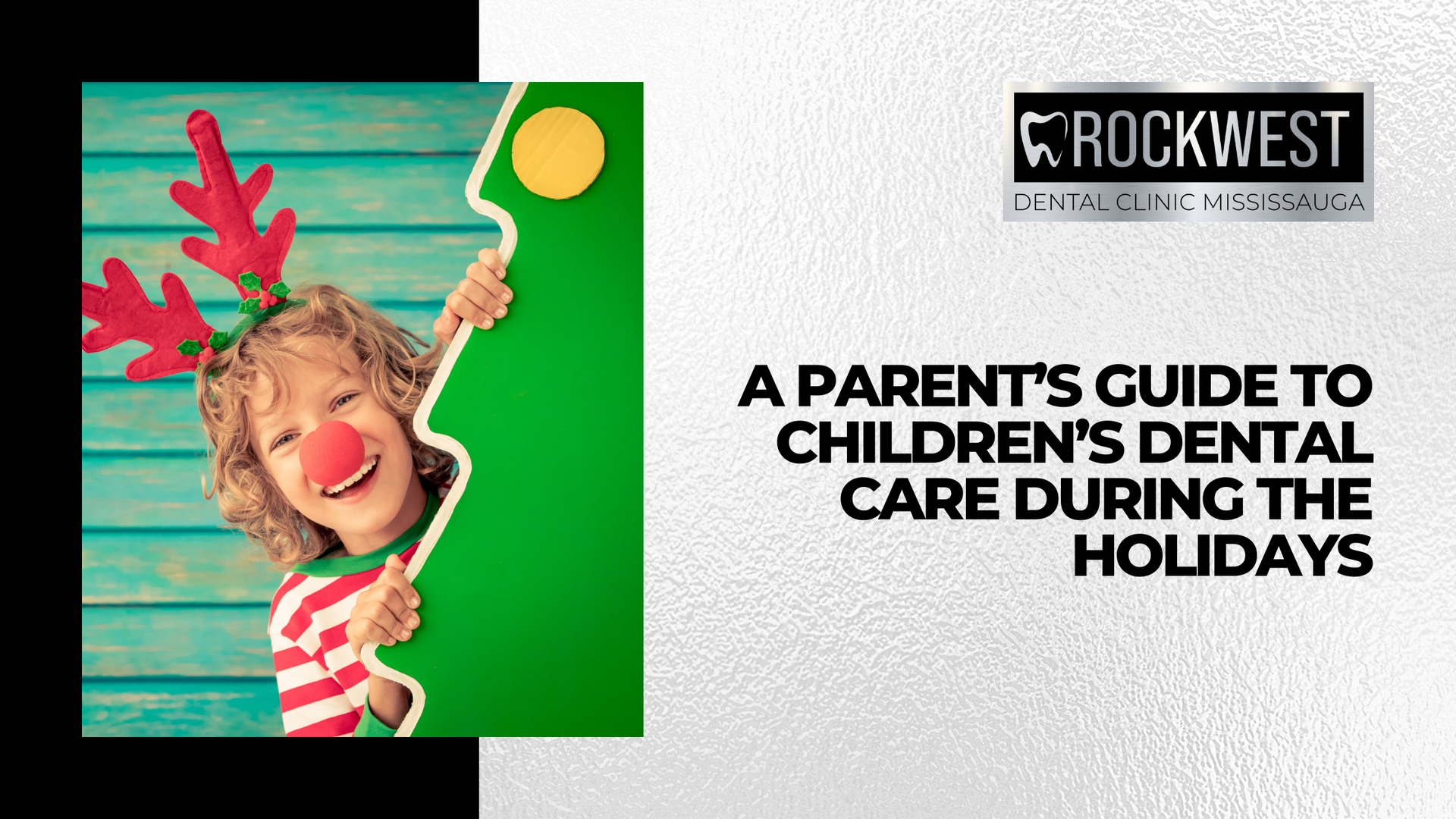

Why Is My Gum Swollen Around One Tooth? Causes and Solutions
Rockwest Dental Clinic Mississauga • November 15, 2024
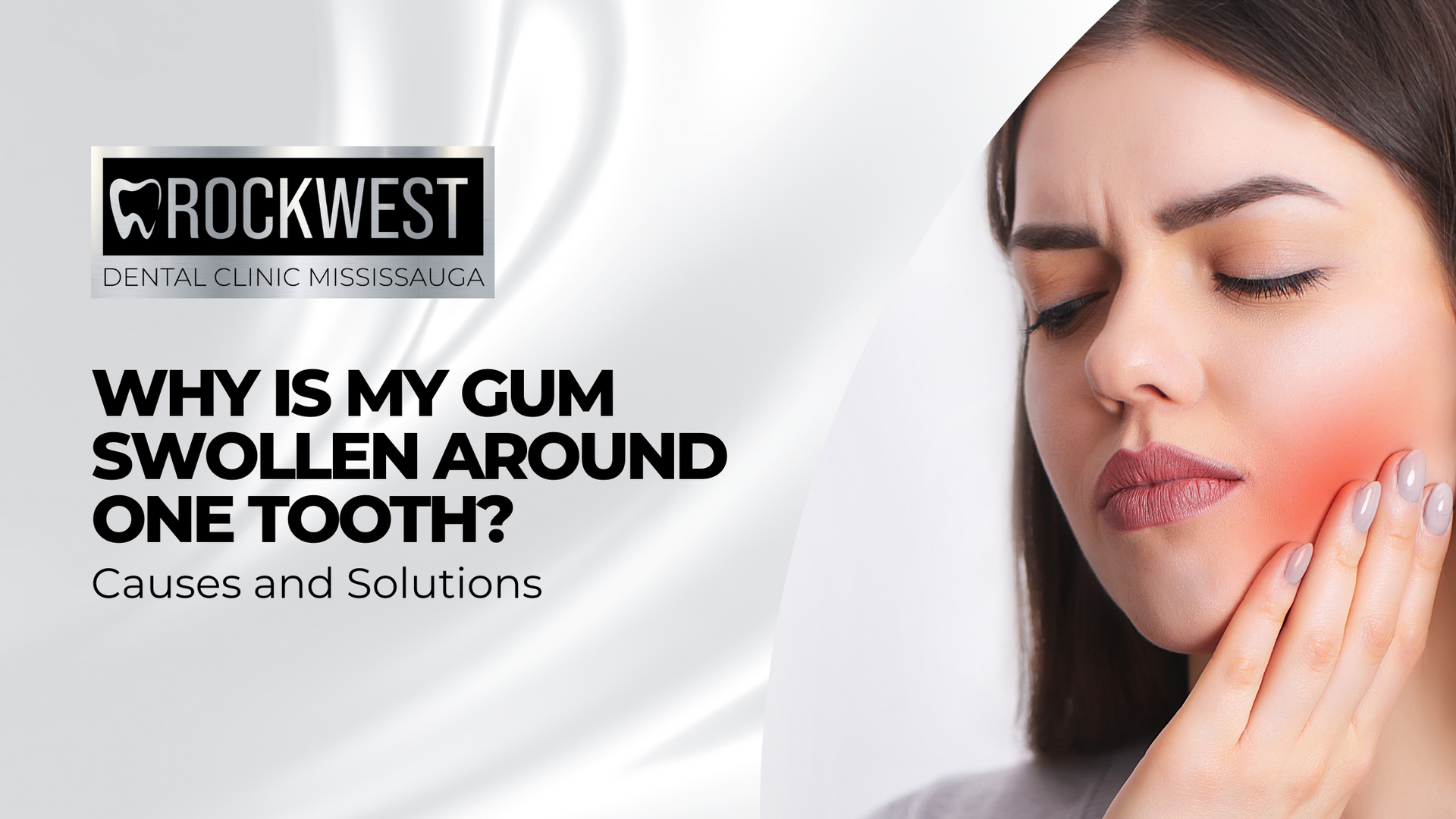
Source: Dr. Marketing
Swollen gums can be a concerning experience, especially when localized around just one tooth. While many assume that swollen gums indicate a serious dental issue, the causes can range from something as simple as irritation to more complex conditions like infections. This comprehensive guide explores the reasons behind a swollen gum around one tooth and offers effective solutions for treating the condition.
Common Causes of Gum Swelling Around One Tooth
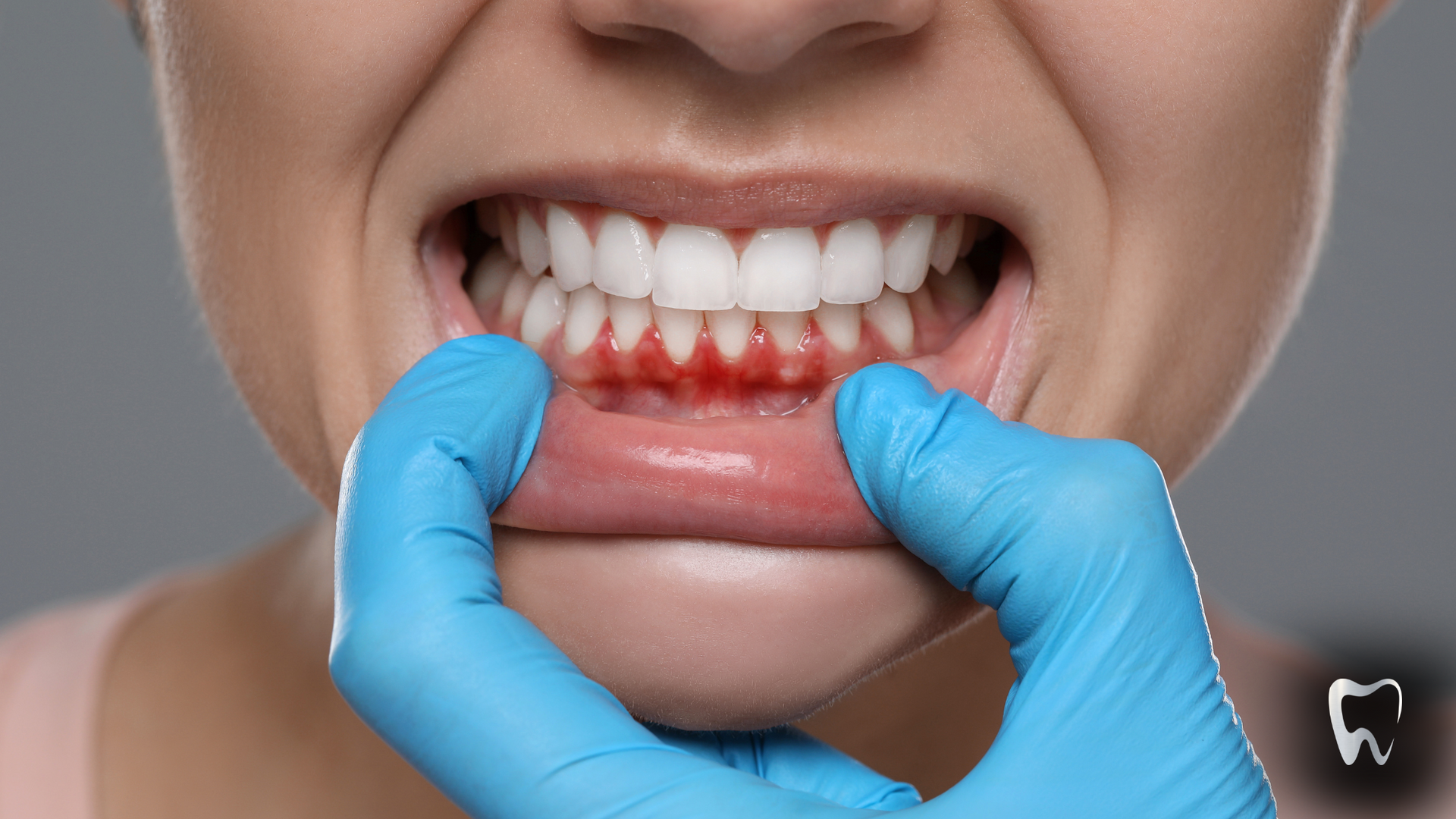
Gum Disease (Gingivitis or Periodontitis)
Gum disease is one of the most common causes of swollen gums around a single tooth. This can range from gingivitis, the mildest form of gum disease, to periodontitis, a more advanced condition that damages the soft tissue and bone supporting your teeth.
When plaque accumulates around a tooth and hardens into tartar, the body’s immune system reacts, leading to inflammation. In the early stages (gingivitis), the swelling may be mild and localized to one area. However, if left untreated, gingivitis can progress to periodontitis, which requires more intensive treatment. According to a study, untreated gingivitis affects 47.2% of adults, often resulting in localized gum swelling if not addressed.
Dental Abscess or Infection
A dental abscess is a pocket of pus caused by a bacterial infection, often forming at the tooth’s root. The infection can spread if left untreated, leading to swollen gums around the affected tooth. A dental abscess is painful and dangerous, as the infection can enter the bloodstream. If you notice severe swelling accompanied by pain, fever, or a foul taste in your mouth, you may have a dental abscess that requires immediate attention. Untreated tooth infections are normally a major contributor to oral diseases globally, highlighting the need for timely intervention.
Irritation or Trauma
Sometimes, the cause of swelling can be as simple as physical trauma or irritation to the gum. This could happen if you accidentally injure your gum while eating hard foods or brushing too aggressively. Dental devices like braces or poorly fitting dentures can also rub against the gums, causing localized swelling. In such cases, the swelling is often temporary and subsides once the source of irritation is removed. However, chronic irritation can lead to more serious gum problems and may even require emergency dental care, so it is essential to address any persistent discomfort.

Food Particles Stuck Between Teeth
It might be surprising how often gums can swell due to small food particles getting lodged between the teeth and gums. These particles can irritate the gum tissue, leading to inflammation. This is especially common with fibrous or hard foods, such as popcorn kernels, that can be difficult to remove. If left untreated, the trapped food can cause infection or even form a gum abscess. According to a study from the Journal of Periodontology, food impaction is one of the leading causes of localized gum inflammation and infection.
Cavity or Tooth Decay
A cavity can also lead to localized gum swelling, particularly when the decay occurs near the gumline. As the tooth decays, bacteria spread to the surrounding gum tissue, leading to inflammation and infection. In more advanced cases, untreated cavities can lead to a dental abscess, further aggravating the gum tissue. Untreated tooth decay is one of the most prevalent dental issues, affecting 2.4 billion people worldwide.
Impacted Wisdom Tooth
An impacted wisdom tooth can also cause gum swelling around one tooth. When a wisdom tooth doesn’t have enough space to fully erupt, it can become trapped under the gumline, leading to swelling and significant pain and discomfort. In such cases, the surrounding gums may become inflamed, particularly if the impacted tooth pushes against the adjacent teeth. Research shows, up to 70% of individuals experience complications with impacted wisdom teeth.
Swollen Gums Treatment
New Paragraph

Proper Oral Hygiene
The first line of defense against swollen gums is maintaining excellent oral hygiene. Brushing and flossing daily will help remove plaque and prevent food particles from becoming trapped between your teeth. Brushing gently with a soft-bristled toothbrush is important to avoid irritating sensitive gums. An antibacterial mouthwash can also help reduce inflammation and kill harmful bacteria. Look for mouthwashes containing ingredients like chlorhexidine or essential oils, which have been proven to reduce gum swelling.
Warm Saltwater Rinses
A simple saltwater rinse can help soothe swollen gums and reduce inflammation. Saltwater is a natural disinfectant that promotes healing and removes bacteria from the mouth. To make a saltwater rinse, mix half a teaspoon of salt with a cup of warm water and swish it around your mouth for 30 seconds. Repeat this two to three times a day for the best results.
Over-the-Counter Anti-Inflammatory Medications
If the swelling is causing pain, over-the-counter anti-inflammatory medications like ibuprofen can help reduce both pain and swelling. However, this is a temporary solution and should be used alongside proper dental care to address the underlying issue.

Visit Your Dentist
If your gum swelling persists for over a few days, it is important to consult your dentist for a proper diagnosis. Your dentist can identify the underlying cause of the swelling and recommend appropriate treatments, such as professional cleaning to remove tartar, draining an abscess, or prescribing antibiotics for infection.
For cases of periodontitis, your dentist may recommend a deep cleaning procedure known as scaling and root planing to remove plaque and tartar from below the gum line. If the swelling is due to an untreated cavity or an impacted wisdom tooth, tooth extraction may be necessary to prevent further complications.
Apply a Cold Compress
Applying a cold compress to the outside of your cheek near the swollen area can help reduce inflammation and numb the pain. Cold compresses constrict the blood vessels, which reduces swelling and provides temporary relief.
Avoid Irritants
Avoiding foods and habits that can irritate your gums is crucial for healing. Spicy, hard, or crunchy foods can aggravate swollen gums, as can smoking, which impairs healing by reducing blood flow to the gums. Try to stick to a diet of soft, non-irritating foods and refrain from smoking while your gums heal.
Proper Dental Care With Professional Services

Localized gum swelling around one tooth can be alarming, but it is usually a symptom of an underlying issue that can be addressed with proper care. Oral health is closely connected to overall health, so taking care of your gums is essential to maintaining a healthy lifestyle. From gum problems to extractions, Rockwest Dental Clinic Mississauga helps you understand the potential causes, which can help you take the right steps toward treatment. Whether you need to maintain good oral hygiene, rinse with salt water or seek professional treatment, contact us and we will help you with the timely intervention of any dental issues.
References
- American Dental Association. (2020). Prevalence of Gingivitis and Periodontitis in the US.
- World Health Organization. (2021). Global Oral Health Status Report.
- Journal of Periodontology. (2019). Food Impaction and Its Role in Gum Inflammation.
- National Institutes of Health. (2020). Global Burden of Untreated Tooth Decay.
- British Dental Journal. (2020). Impacted Wisdom Teeth and Associated Complications.


